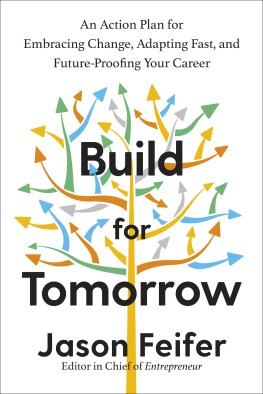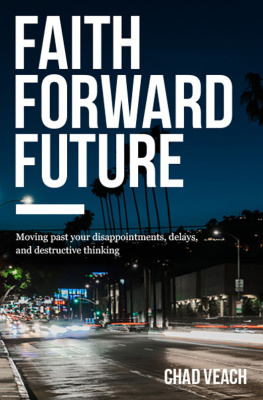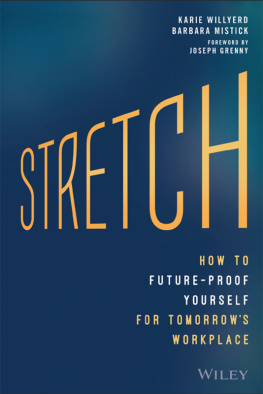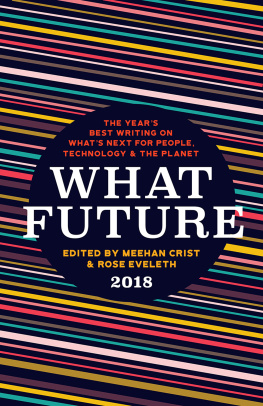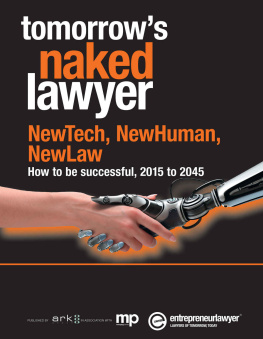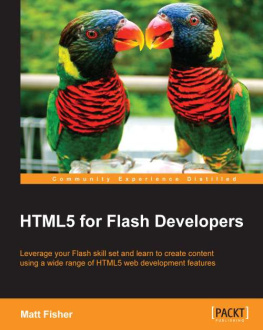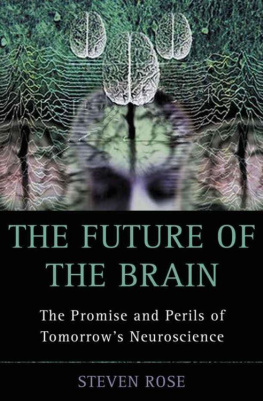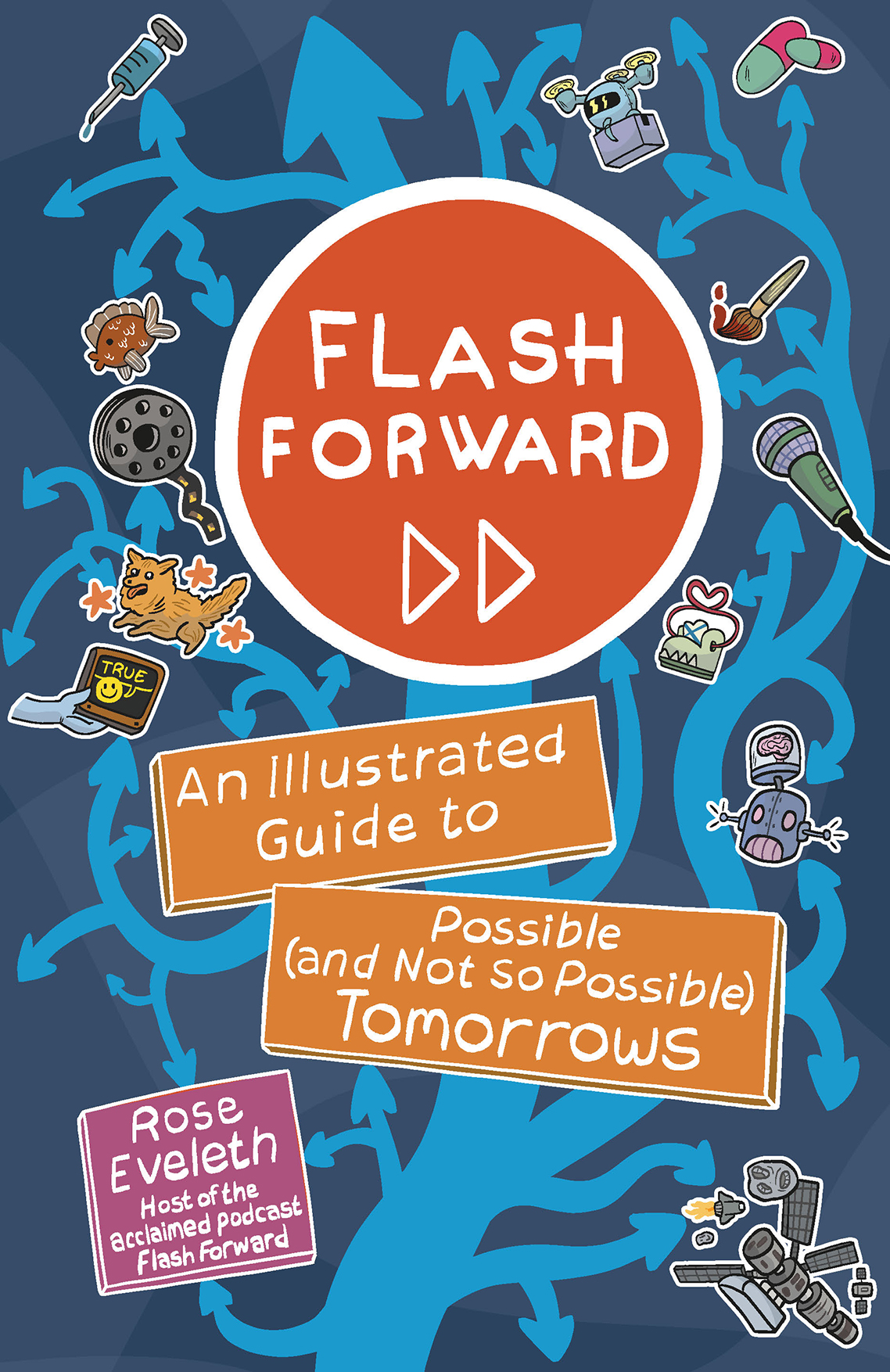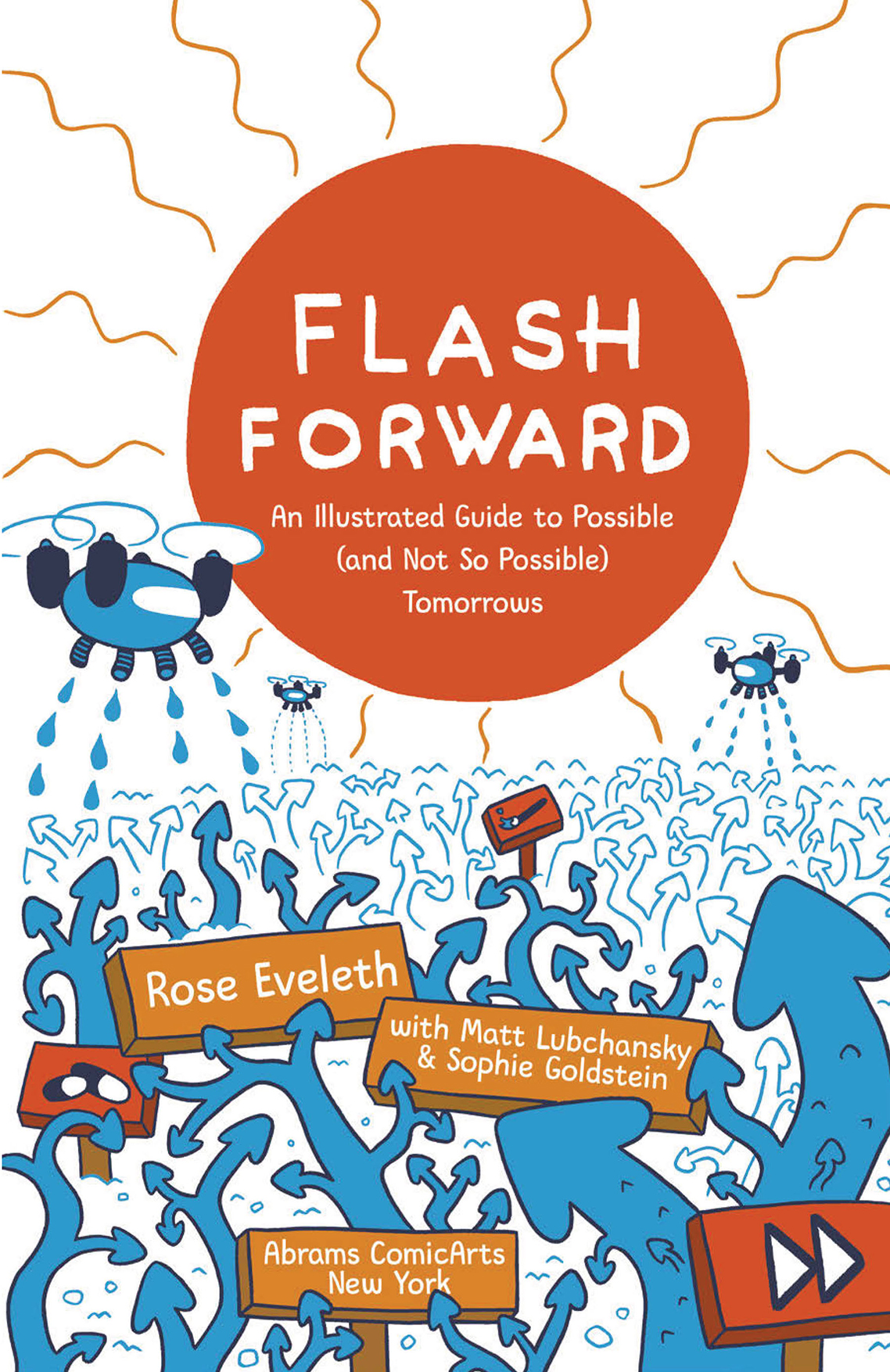Table of Contents
Guide

For Robert,
who makes my present possible
while I traipse about in the future.
The only thing that makes life possible
is permanent, intolerable uncertainty:
not knowing what comes next.
Ursula K. Le Guin,
The Left Hand of Darkness

CONTENTS

INTRODUCTION
I WANT TO TELL YOU SOMETHING ABOUT THE FUTURE.
Its something thats equal parts terrifying and liberating, ghastly and
amazing, unnerving and wonderful. The thing I want to tell you about
the future is this: It hasnt happened yet. This might seem obvious, but
its something we all could stand to remember as were bombarded with
advertisements and tech CEOs and certain so-called futurists claiming that
this or that is definitely going to happenthat were locked into an inevitable
future, so we might as well fasten our seat belts and come along for the ride.
In a move that longtime listeners will likely recognize, Id like to start
this book about the future with a short trip into the past. Specifically, lets
zip over to the year 1859. More than 150 years after Isaac Newton first
published his book describing the laws of planetary motion, there was still
one small thing that astronomers couldnt quite figure out: Mercury. While
Newtons equations explained most of what they saw in the sky, the tiny
white-hot rock looped around the sun faster than it should have. Something
was messing with its orbit, but nobody could figure out what.
In the 1850s, a French astronomer named Urbain Le Verrier came up with
a theory: a mysterious and elusive planet must exist between Mercury and
the Sun. Le Verrier called the planet Vulcan, and for more than fifty years
astronomers searched the sky for evidence of the planet, pointing to all kinds
of specks and spots as proof that Vulcan existed. The
New York Times
wrote
that Le Verriers discovery of Vulcan ought to be warmly welcomed by all
astronomers.
Of course, there is no Vulcan. But it took a completely revolutionary set
of equations to put the mythological planet to bed. In 1915, Albert Einstein
published a series of papers outlining his Theory of General Relativity. As
he was preparing to present the third paper in the series, Einstein decided
to see whether his equations could explain this nagging mystery. When his
calculations accurately predicted the procession of Mercury, he later told
a friend that he was so excited he had heart palpitations and was beside
himself with joy.
In other words: A measurement made in the seventeenth century
that seemed like a small, insignificant blip wound up being a key clue to
the phenomenon that underpins our scientific understanding of the entire
universe. Einsteins pen destroyed Vulcanand reimagined the cosmos,
writes Thomas Levenson in his book
The Hunt for Vulcan
.
There are so many surprises like this onerealizations and reimaginings
that unlock entire worlds of discovery. The ability to manipulate bacteria
to cut up DNA strands was discovered in the 1990s, but it wasnt until a

INTRODUCTION
few years ago that CRISPR suddenly become a game-changing technology.
Polyethylenethe most popular plastic in the worldwas discovered by
accident; nobody predicted it would become the most ubiquitous human-made
material in the world.
The doctor who discovered the benefits of hand-
washing in the 1840s was ridiculed and died in an asylum after nobody listened
to him.
And of course, the reverse is true as wellthings we think are incredibly
important today might wind up being odd and embarrassing historical footnotes
tomorrow. Many famous scientists at the turn of the twentieth century
believed, for example, that mind reading was absolutely possible. Alexander
Graham Bell may have invented the telephone in part to try to communicate
with his dead brother. Its easy to find predictions gone badly wrong. One
of my personal favorites comes from the 1906 book
A Hundred Years Hence:
The Expectations of an Optimist
, which declares: The plan of attaining the
upper part of a small house by climbing, on every occasion, a sort of wooden
hill, covered with carpet of questionable cleanliness, will of course have been
abandoned: it is doubtful whether staircases will be built at all after the next
two or three decades. We are constantly dropping stones into the pool of
time, and which ones will sink and which will splash is often a mystery that can
take decades to solve.
I often call myself a futurologist, an admittedly dorky term that
encompasses the many (sometimes tinfoil) hats that I wear. I study the future
the way a melittologist studies bees by watching each buzzing insect closely
and gathering data and trying to decipher it. I watch the people who try and
map out the future (Futurists with a capital
F,
with their degrees in things
like Strategic Foresight) and the science-fiction writers who try to tell stories
about the future. But those are not the only bees in the hive of the future. I
also watch the historians, the economists, the inventors, the biohackers, the
mothers organizing UBI experiments, the disabled people hacking their bodies
and equipment, and the farmers trying to learn new techniques and adapt to
new technologies.
The future is not made exclusively by white men in black T-shirts who
give TED Talks. The future is far more ornery and slippery than that. Sure,
youre not Jeff Bezos or the CEO of a fossil fuel corporation,
and it would be
absurd for me to tell you that you have the same kind of power and influence
as they do. But what you do shapes the future, too. Your decisions for what
to accept or not accept can shift the Overton Window, can push your local
politicians to change their votes, and can convince your neighbors and friends
to change their behavior. The world around us is the aggregate of our choices,
and those choices matter. If they didnt, corporations and politicians wouldnt



